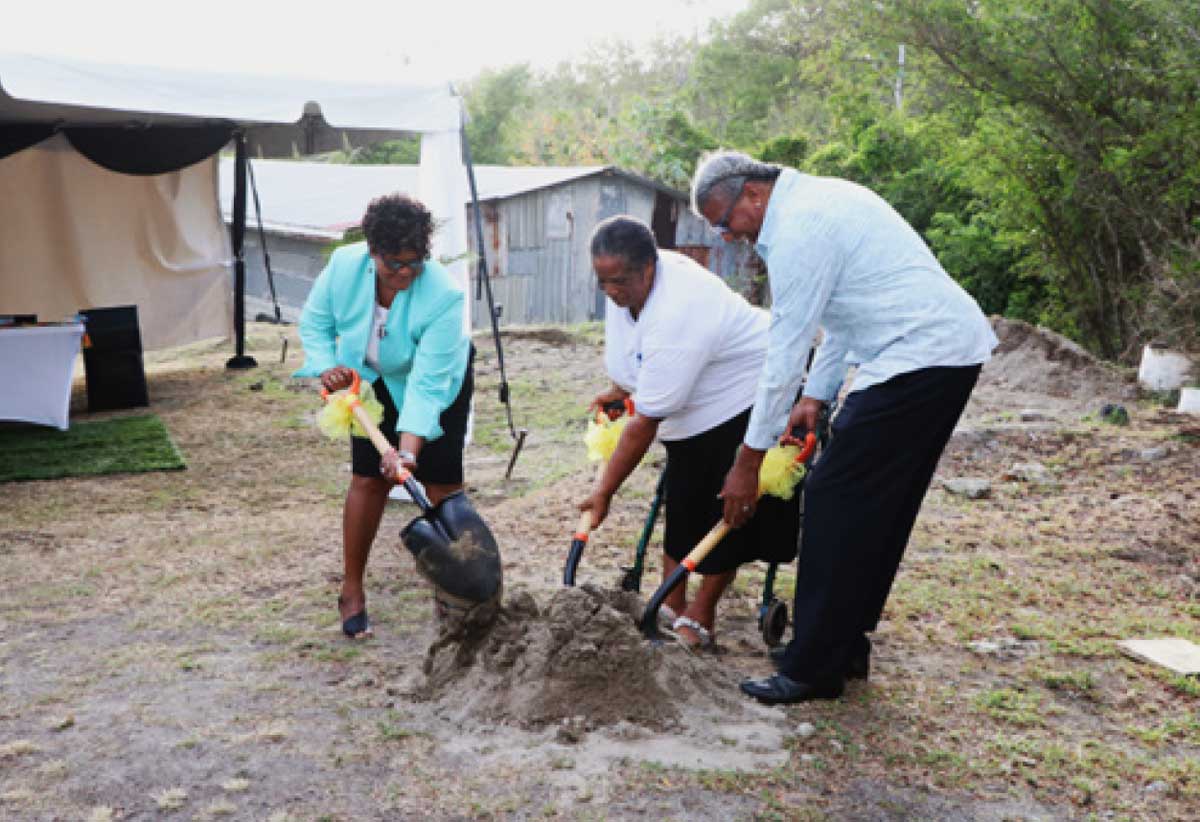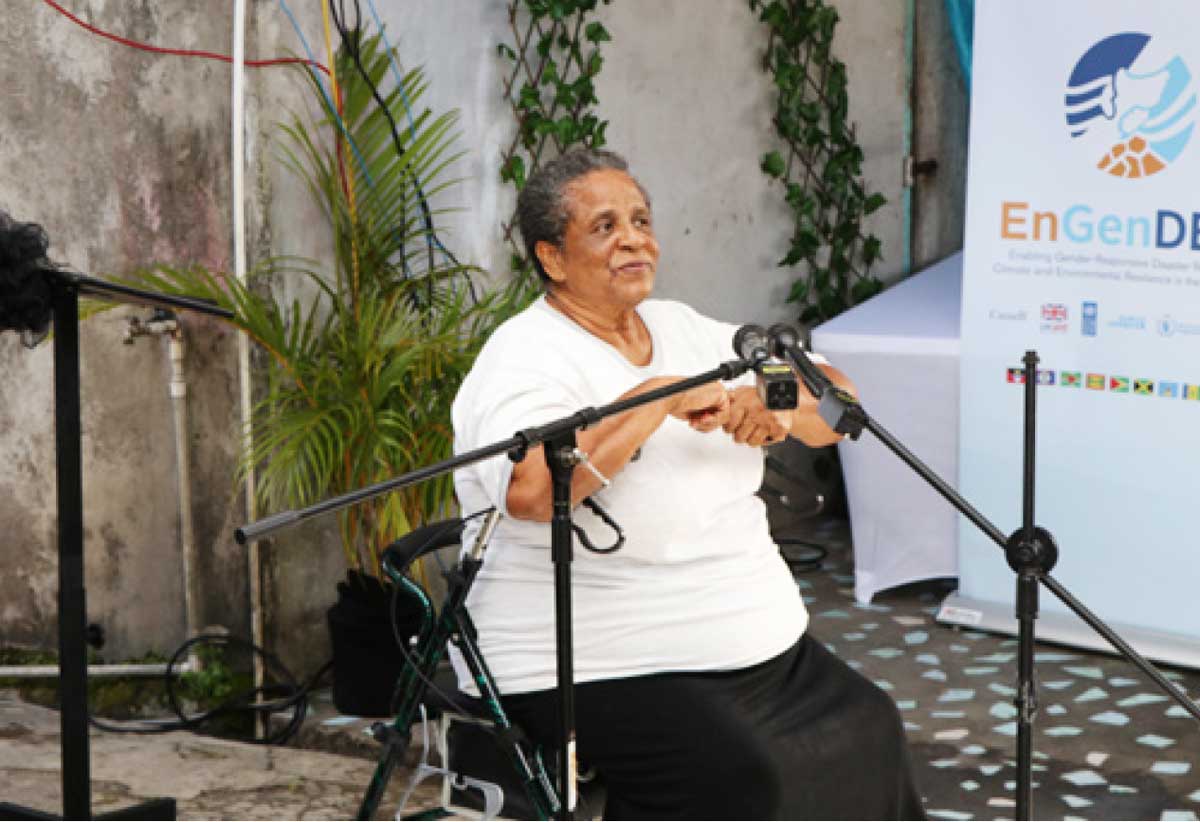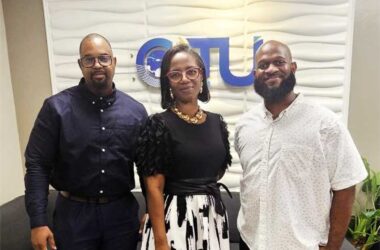
Leveraging the symbiotic relationship between fish and plants is at the heart of a new project aimed at increasing food security, building resilience to climate impacts and enhancing the livelihoods of Saint Lucians, particularly those living with disabilities.
With support from the United Nations Development Programme’s (UNDP) Enabling Gender-Responsive Disaster Recovery, Climate and Environmental Resilience in the Caribbean (EnGenDER) Project, and the governments of Canada and the United Kingdom, the Government of Saint Lucia, on May 10, 2022, broke ground on the “Inclusive Aquaponics for a Resilient Saint Lucia” a project which will provide employment opportunities for over 40 persons living with disabilities.
Speaking during the project launch, Director of Gender Affairs, Janey Joseph, said gender-based inequalities lead women, the vulnerable and especially persons with disabilities to face more adverse climate change impacts than men and other abled individuals.
“This project…intends to provide the full circle of amenities needed for the beneficiaries to learn, produce, market, manage and administer the commercially sized aquaponic units,” Joseph said. “Thus this launch is not a mere ground-breaking ceremony for the installation of two aquaponic units, but rather a thrust to empower two groups of individuals with disabilities to become business men and women in a ground breaking manner.”
This project is innovative in several ways, as it gives special consideration to differently-abled and vulnerable farmers in Saint Lucia. It is also the first project to be fully developed from the island’s agricultural and fisheries Sectoral Adaptation Strategy . The Strategy is part of Saint Lucia’s overall plan to adapt to climate change through its National Adaptation Plan . This project underscores the shared commitment between Government of Saint Lucia and the EnGenDER Project to ensure gender equality and social inclusion are prioritized in national efforts to improve resilience to natural hazards and climate impacts.
“We made a commitment to focus on the poorest and most vulnerable, and that includes persons with disabilities. A growing body of evidence shows when women, girls and marginalized groups have a seat at the table, we enhance the impact and reach of our institutions and resources,” said Ashley Crossley, First Secretary, Development, High Commission of Canada to Barbados and the Eastern Caribbean. “We believe this is the most effective approach to building a more peaceful, more prosperous and more inclusive world,” she said.
The UNDP EnGenDER Project is funded by the Governments of Canada and the UK, and has been operating since 2020 to further integrate gender equality and human rights-based approaches into disaster risk reduction, climate change adaptation and environmental management frameworks in nine Caribbean countries – Antigua and Barbuda, Belize, Dominica, Grenada, Guyana, Jamaica, Saint Lucia, St. Vincent and the Grenadines and Suriname.
“UNDP, through the EnGenDER Project, remains committed to supporting projects that protect society’s most vulnerable, including persons living with disabilities, and ensuring they have equal access to tools and opportunities that improve their resilience to climate change, enhance their opportunities to earn and provide greater food security,” said Ugo Blanco, UNDP Deputy Resident Representative, Barbados and the Eastern Caribbean.

In expressing their gratitude for this commitment, Albertina Mondesir, President of the Farmers with Disabilities Association said the project will provide numerous opportunities for the beneficiaries.
“We will plant it, we will nurture it and we know that it will grow into fine trees that will bear fruits of life, livelihood, resilience and economic benefit,” Ms. Mondesir said. “And we will use these benefits to help meet our social, medical, educational and other needs, and to ensure that future persons with disabilities know there is something that they can come to learn from and build on.”
As exogenous threats like COVID-19 continue to impact the region, it is vital that developmental efforts continue to reinforce the need for regional resilience, building better and bolstering livelihoods for traditionally vulnerable groups.
UNDP Barbados and the Eastern Caribbean, in partnership with governments and stakeholders, remains dedicated to the advancement of inclusive and sustainable development throughout the region. This intervention is part of the work of UNDP Barbados and the Eastern Caribbean in its commitment to promoting economic diversification, job creation and resilience with the “Blue Economy for Green Islands” vision.













